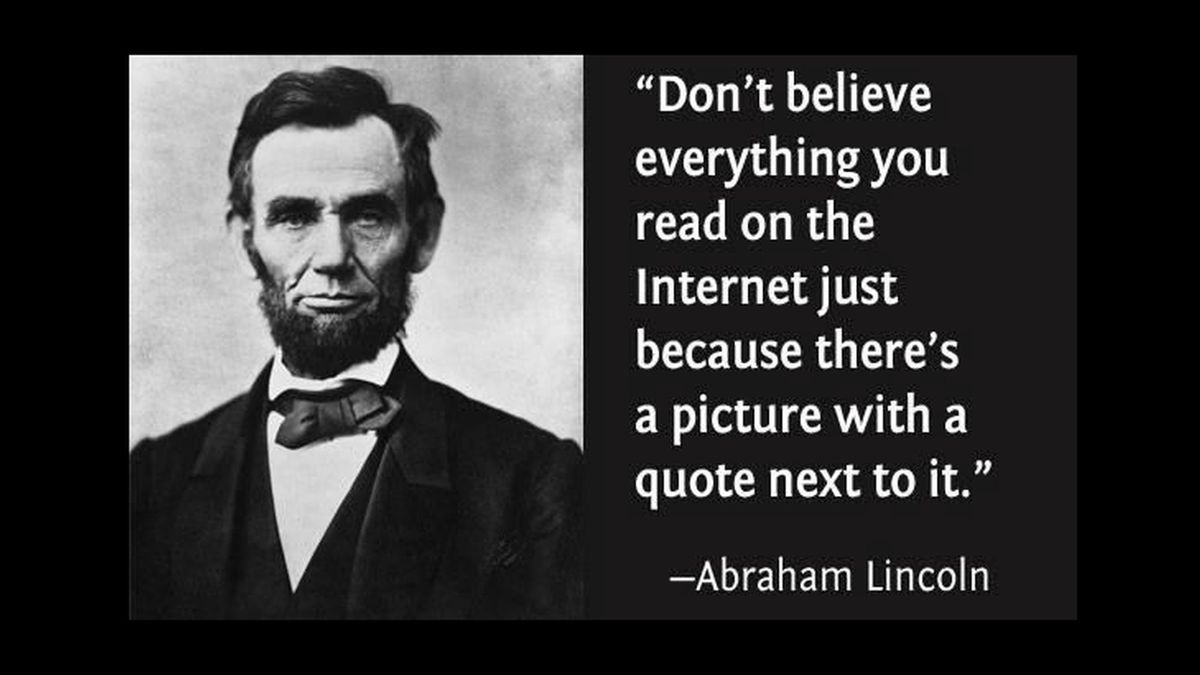“The Party told you to reject the evidence of your eyes and ears.1 It was their final, most essential command.” George Orwell, 1984. (yes, that’s why I left Iwazaru out of the picture)
Told.
Obeyed.
But willfully?
There have been numerous criticisms, pretty much all correct in my opinion, that most of the anti-fascist, anti-bigotry posturing on social media... is just that. Posturing. Performance. Talk. Push comes to shove, they would yell back to see if Anne Frank was expecting anyone, then retreat to their own safe privileged space.
Over the course of my still relatively new Substack, I think, I hope, I trust I’ve proven myself in the minority of those actually trying to solve or at least understand the MAGA problem instead of just complaining.
If you’re a fairly routine reader of A Spoonful of Sugar, thank you, and you’re aware that as a physician, one of my favorite pastimes is loathing popular medical pundits. Well, just the ones who can’t seem to find their bully pulpit for critical medical topics facing the public and for which science already has fact-based explanations that would easily demolish any political “controversy,” like “is waterboarding actually torture?”2 How long did that go on??? And no, some blowhard’s wackadoodle opinion amplified at least 10 gullibillion3 times on social media does not constitute a “controversy.”
Yet sure as the sun rises, you can count on those medical pundits finding their stage and mic when they have a new book coming out.
And have said facts have become passé? If so, it’s most likely because those with solid command of the facts, including these medical pundits, have been looking the other way for some time now.
Anybody could have done it, but Nobody did it. Somebody got angry about that, because it was Everybody's job. Everybody thought that Anybody could do it but Nobody realized that Everybody wouldn't do it. It ended up that Everybody blamed Somebody when Nobody did what Anybody could have done.
If you’re one of my greatly appreciated (it’s true!) routine readers, you also know that one of the things that drives me is a probably unhealthy desire to understand those who are hell bent on destroying our world with them in it. Truly understanding them will be the only way we will ever effectively address this malignant disease. What can I say? I have a terminal case of curiosity.
In healthcare we have the routine but privileged opportunity of observing behavior, ostensibly as part of our job, though not like that of the founding developmental psychologists. By virtue of our profession however, healthcare providers also have an obligation to attempt to guide that behavior for the positive. And to be most effective in encouraging positive change? We must first try to understand the drivers of the counterproductive behavior.
I knew as early as 5th grade that I wanted to be a physician, and pretty confident I wanted to be a pediatrician (well before I encountered “parents” – yes, I do get it, but I prefer routinely working with objectivity). When I began my undergraduate studies, I figured I should begin to seek out more focused education in that direction, so I took a Child Development class. At first, with all the Debbies in the room, I thought it might be a huge waste of my time, but the professor was great so it turned out to be one of my more memorable studies.
If I sense something, it exists. But if my ability to sense it is obstructed, does it still exist? Great question! I’m glad you asked!4
Early developmental psychologist Jean Piaget estimated that a child’s object permanence developed through physical contact with surroundings, somewhere between 8-24 months of age.
More recent and better designed investigations have demonstrated object permanence as early as 3 months of age. Demonstrating object permanence was one of the earliest methods for evaluating a working memory.
Schrödinger’s developmental delay: Is the kitty alive and dead?
Out of sight, out of mind, right? OK, but what if the object is a person?
How can I miss you when you won't go away?
Keep telling you day after day
But you won't listen, you always stay and stay
How can I miss you when you won't go away?The Amazing Charlatans, 1967
And if that person is still in front of you, but their behavior is not in character?
Object Constancy, with respect to people, refers to the ability to separate your view of a person’s character from how angry, disappointed, frustrated or _____ you are with them at the moment.
Emotional Permanence is a specific type of object constancy that enables trusting that other people care for you even if they’re not actively doing it in front of you. It’s easy (I think) to understand how difficulties with either object constancy or emotional permanence can be a significant challenge for relationships.
To the person without emotional permanence, this can be quite a struggle and may result in the fear of abandonment, emotional volatility, having difficulty regulating emotions, and unstable relationships.
It is typically difficult for someone with poor emotional permanence to conceptualize that two opposite emotions can be experienced at the same time, such as being frustrated with someone you love. Similarly, it is difficult for them to trust that emotions can be lasting, or even sincere. It is easy to see how these struggles may result in the mistrust, insecurity, jealousy and/or paranoia that poisons relationships.
To make the contrast clear, having emotional permanence allows for feeling secure and confident in relationships, having stable emotions, generally feeling happy with a positive outlook, and not needing constant emotional validation.
Toxic relationships, childhood trauma, anxiety disorders, bipolar disorder, and borderline personality disorder are among the more common contexts thought to contribute to difficulties with emotional permanence.
But wait! This is where it gets fun!
While there are actually many different philosophical views of truth5, there are no “alternative facts” by the very definition of what a “fact” is.
Facts don’t change if you do not believe them
While there is a ginormous and growing amount of both misinformation and disinformation, the truth has also never been easier to find.
So, the thesis: Can we humans willfully cultivate a lack of object constancy or emotional permanence for something or someone? Can people/patients/voters truly be “willfully ignorant”?
The more I contemplate this, the more I do not think so, as “willfully” is doing all the lifting here. (I stand by my frequent accusation of voters being “intellectually lazy.”)
Lacking object constancy/emotional permanence is not willful but is typically learned and/or organic. Yes, I actually do think someone can be ignorant of climate change, vaccine efficacy, poor nutrition among the poor, transgenders, horrible health insurers, etc. IF they have significant difficulties with object constancy/emotional permanence, but again, that’s not willful.
Contrast that with denialism, which refers to a person’s active rejection of fact so as to avoid a psychologically uncomfortable conclusion. Not entirely unrelated though perhaps less calculated, there is the commonly misunderstood conventional (convenient) wisdom.6 So, yes, denialism is willful, and ignorance cannot be claimed or blamed.
Geography Pop Quiz! Hint: This is not denial.
Similarly, but I believe different enough to mention, there does also unfortunately appear to be a large segment of the population which willfully rejects evidence as a result of cognitive dissonance: “I see the earth revolving around the sun, but religion says the sun revolves around the earth, and this causes me great stress. Fortunately, the self-proclaimed agents of the magic sky wizard are never wrong and this justifies my ignoring my senses.”7 Again, a willful choice, and ignorance cannot be claimed or blamed.
Finally in this admittedly reductionist approach more expansively discussed in my widely anticipated new self-help book,8 Mental Gymnastics for MAGA, and in what I consider to be the worst case, I’ve a postscript for those who instead exercise a malevolent and intentional public denial of fact for secondary gain – power, prestige, revenge, retribution, spite, racism, etc. Some public figures definitely know the facts – as currently understood in our world – but pursue a contradictory course which is both useful and typically profitable.
Religion is regarded by the common people as true,
by the wise as false,
and by rulers as useful.
Lucious Annaeus Seneca9
These opportunists definitely realize there is evidence of climate change, vaccine efficacy, poor nutrition among the poor, transgenders, horrible health insurers, etc., but they fully realize that playing to the masses’ baser instincts is much more lucrative.
In an example perhaps not so far off as may still be considered recent times, still early in the pandemic, talking head agitators got vaccinated for Covid while outwardly railing against the need to be vaccinated (and likely resulted in tens of thousands or more deaths), as that was so much more effective for rage farming, and of course yielded untold clicks, follows, and... ad revenue. Yeah, that actually happened.10
And if object permanence and emotional permanence sound fairly complicated and uniquely sentient, what about AI? While we’re busy counting and laughing at extra AI fingers in fake political ads, or you’re having AI write your term paper (you’re not doing that, are you?), you should realize that AI is learning object permanence.11 Soon, you can have a more stable relationship with your AI agent than with another human. How perfect is that?
Ok. Now here is where it actually gets a little complicated.
If we have difficulty separating our view of a person’s character from how angry, disappointed, frustrated or _____ we are with them at the moment, do we not ourselves have Object Constancy? Are we lacking in Emotional Permanence if we no longer trust that they care for us when they are not actively demonstrating it to us? Perhaps the fallacy here is our presumptive view of that person’s character, based on insufficient information. Are they an internet “friend,” or a real friend? Or were those demonstrations saccharine?
As above, difficulties with either object constancy and/or emotional permanence can be a significant challenge for relationships of all types.
If the biological family you did not choose lacks emotional permanence, that’s difficult, or sometimes impossible, and either way not your fault. If it’s willful, then you’ve got an unsavory aspect to that problem you don’t control. There are numerous approaches to improving your emotional permanence, but improving theirs?
You think it's easier
To put your finger on the trouble
When the trouble is you…The Troubles, Songs of Innocence, U2
I’d like to know, do these concepts help you understand the varied relationship difficulties you have encountered with our political divide? Or is it an emotional permanence divide? I hope this post helps you, and would be pleased to know it.
Words at play: The Japanese proverb mizaru, kikazaru, iwazaru is a play on words that uses the negative verb ending -zaru to represent the idea of "see not, hear not, speak not". The word for "monkey" in Japanese is zaru, which is homophonous with the negative verb ending.
The number of MAGAs who do not realize the word “gullible” is not even in the dictionary!
You’re going to be anticipating this for a really, really long time










Well, I guess we’re doomed. If object constancy is developed by age 3 months then that implies that there is no plasticity of the brain. But as someone who recently began attending adult children of alcoholics, organization, I realize that my upbringing really screwed me over. I didn’t control that. All I can control now is my understanding and my compassion. One of the elements missing from this excellent article is the influence of social media. When we have friends, we never met and can “unfriend“ anyone we decide we no longer need in our sphere of influence that has a direct impact on our emotional growth. Thanks for the thought-provoking article, Dr. Rochat!
It's not, first, a political divide.
Rather -- first -- it's the enterprise to replace the human (emotions, memory, first love, personal debts, humor) with abstractions, categories, and group logic.
Standardized testing can replace the human all the more easily if humanities disappear first from the schools. That's why the Powell memo's main earliest foundations (a new Heritage, an expanded Hoover, and a new ALEC) all spent the 1970s killing off the human, our humanities, in schools.
When the Powell memo started, August 23, 1971, it was visceral. All the corporate players knew only that many novels, films, and songs of the 1960s helped energize, focus activists in anti-war, civil rights, environmental, and feminist causes. It was all too human. For the business-friendly, easily measurable, finally countable, totally abstracted and packaged alternatives to the human, standardized testing came as a Godsend to the nihilists already dehumanized. They the rich and corporate serving were already dehumanized themselves, and intended all of America, all of the world to sink to what we would call their fill-in-a-b-c-d and later their algorithms.
Sink we have. Dehumanized we have. So we've finally achieved rule by a convicted criminal (and rapist, and fraud, and perpetual liar) and all his "Invasion of the Body Snatchers" fellow crippled.